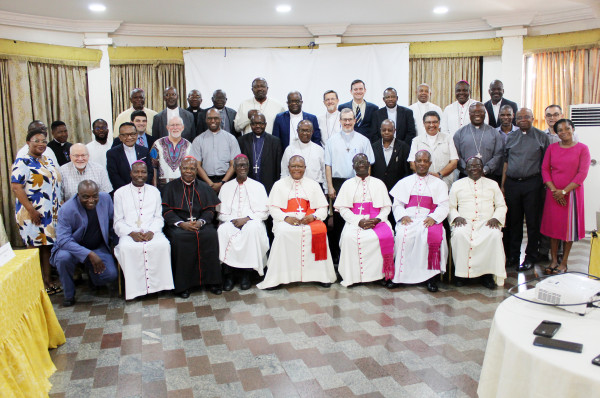CISA
ACCRA, MARCH 12, 2024 (CISA) – The Symposium of the Episcopal Conference of Africa and Madagascar (SECAM) has condemned foreign investments that have led to the exploitation of Mineral and Natural Resources in Africa, consequently fueling violence and conflicts in many parts of the continent.
In a seminar held from March 8 to 10, 2024, in Accra, Ghana, under the theme “Conflicts in Africa in the Context of the Exploitation of Natural and Mining Resources,” participants, including bishops, priests and lay Catholics, deliberated on the link between natural resource exploitation and conflicts within the African continent.
In the three-day meeting, the over 40 participants discussed myriad topics, including the exploitation of mining and other natural resources in Africa, theological reflections, legal frameworks and regulations, the Church’s commitment, advocacy initiatives, as well as strategies for future endeavours aimed at addressing the multifaceted challenges associated with these situations, particularly conflicts and their ramifications stemming from the exploitation of natural resources.
The participants echoed the sentiments of Pope Francis during his apostolic journey to the Democratic Republic of Congo and South Sudan from January 31 to February 5, 2023, in which he implored, “Hands off Africa! Stop choking Africa: it is not a mine to be stripped or a terrain to be plundered. May Africa be the protagonist of its own destiny! May Africa, the smile and hope of the world, count for more. May it be spoken of more frequently, and have greater weight and prestige among the nations!”
Fridolin Cardinal Ambongo, the Archbishop of the Metropolitan Archdiocese of Kinshasa and President of SECAM, underscored the paradoxical scenario wherein significant foreign investments in oil, gas, mining, and natural resources fail to adequately benefit the local populations of the continent.
Cardinal Ambongo emphasized the urgent need for the Church in Africa to adopt a pastoral approach to integral ecology and ecological conversion informed by its social doctrine, particularly about extractive industries.
The participants identified key challenges associated with mining and natural resource exploitation on the continent and exchanged experiences regarding the Church’s existing responses to these challenges within certain Episcopal Conferences and regions worldwide.
Various situations across the continent were examined, leading to the formulation of actionable proposals aimed at fostering a better future for believers of all denominations, religious communities and society at large.
Key among the proposals is the advocacy for the establishment of a Continental Day of Prayer and Solidarity in Africa to highlight specific issues in specific countries and amplify the voices of the marginalized. Additionally, there is a call for enhanced education on integral ecology, as well as increased involvement of legal and media professionals in monitoring natural resource exploitation and advocacy efforts.
The March seminar was organized in collaboration with the Vatican Dicastery for Promoting Integral Human Development, Misereor, Catholic Relief Services (CRS), Mosaiko Institute for Citizenship, Centre d’Etudes pour l’Action Sociale (CEPAS), Denis Hurley Peace Institute (DPHI), and Catholic Peacebuilding Network of Notre Dame University.

